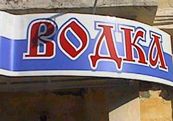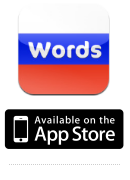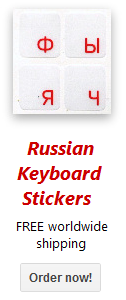| FR | About us | Home | User agreement | Link to us |
Verbs of Motion in Russian
Russian verbs of motion belong to a special category of verbs used to describe the means of transportation or ways of movement. They are handy to describe a variety of situations – when you walk to a nearby store, take a bus to the market, or go across the city by subway. Verbs of motion go in pairs and have their rules and irregularities. Once you've familiarized yourself with the first pair of verbs, you'll have an idea how to use the rest of the verbs of motion. Let's start with the verbs идти and ходить.
ИДТИ, ХОДИТЬ (to go by foot)
| идти | ходить |
The verb pair идти-ходить has the general meaning "to go by foot" or "to walk". In order to understand the difference between individual verbs in the pair, you should pay attention to the direction of movement, as shown in the table.
| ИДТИ | ХОДИТЬ |
| Direction The verb suggests that movement has only one direction. |
Direction The verb suggests that movement has either none or more than one directions. |
| Nature The verb suggests that movement happens on one occasion. |
Nature The verb suggests that movement happens on a habitual, repeated basis. |
You should use the verbs of the type идти in situations describing movement in one direction, when you want to ask about the movement at the moment it is taking place, or when you want to give a specific command to move in a certain direction.
On the contrary, you should use the verbs of the type ходить to talk about uncoordinated movements in several directions, when asking questions about movement in general, when talking about movement in several directions as an action taking place on a regular basis, and when you talk about abilities, skills and habits. Take a closer look at the usage of these verbs.
| ИДТИ One direction / one occasion |
ХОДИТЬ Many directions / habitual |
| The verb is used to: | The verb is used to: |
| 1. Describe a movement in one direction Он идёт по улице. He’s going along the street. |
1. Talk about uncoordinated movements in several directions Он ходит по улицам города. He walks along the city streets. |
| 2. Ask about a movement at the moment it is taking place Куда ты идёшь? Where’re you going? |
2. Ask questions about movement as a habitual, repeated action Куда ты ходишь каждый день? Where do you go every day? |
| 3. Talk about a movement in one direction that takes place on a regular basis | 3.1. Talk about movement in several directions as an action that takes place on a regular basis Каждый день я хожу на работу. Every day I go to work. (back and forth) |
| 4. Give a specific command to move in a certain direction Иди сюда! Come here! |
3.2. Talk about movement in two directions (back and forth) that took place only once Вчера я ходил в кино. Yesterday, I went to a movie. |
| 4. Talk about movement as a skill or habit Младенец умеет ходить. The baby can walk. |
Now let’s take a look at the complete conjugations of the verbs идти-ходить. Note that these verbs are imperfective. In order to form the future simple tense, you will need to know the perfective form пойти.
ЕХАТЬ, ЕЗДИТЬ (to go by transport)
| ехать | ездить |
The general meaning of the verb pair ехать-ездить is "to go by a means of transportation, such as car, bus, tram, bicycle, etc." or "to travel". The verb ехать is used the same way as идти, while the verb ездить is used similar to the verb ходить.
The following examples show that the choice of a particular verb from a pair is governed by direction and nature of movement:
Обы́чно я хожу́ на рабо́ту пешко́м.
I usually go to work by foot. (habitual, back and forth)
Одна́ко, сего́дня я е́ду на рабо́ту на авто́бусе.
However, I'm going to work by bus today. (one occasion, today only)
Here are the complete conjugations of the verbs ехать and ездить. Note that these verbs are imperfective. In order to form the future simple tense, you will need to know the perfective form поехать.
Verb choice in different tenses
In order to help you better understand the usage of Russian verbs of motion in different grammatical tenses, let's study the following table:
| Past tense | Present tense | Future tense |
|
Я (он, ты) ходил (ездил) Я (она, ты) ходила (ездила) Вы (они) ходили (ездили) |
Я хожу – езжу Мы ходим – ездим Ты ходишь – ездишь Вы ходите – ездите Он, она ходит – ездит Они ходят – ездят |
Я пойду – поеду Мы пойдём – поедем Ты пойдёшь - поедешь Вы пойдёте – поедете Он пойдёт – поедет Они пойдут - поедут |
As you can see, the verbs ходить-ездить are used in the past and present tense (when the action repeats every day, rarely, or often). In the future tense, the verbs идти-пойти and ехать-поехать are used instead. For example:
1. Вчера я ходил в кино. Я часто хожу в кино. Завтра я пойду в кино.
2. Вчера мы ездили на рынок. Мы редко ездим на рынок. Завтра мы поедем на рынок.
Russian verbs of motion
There are total of 14 pairs of verbs of motion to express various types of movement. The verbs below are listed as Determined/Non-determined pairs:
- бежа́ть - бе́гать (to run)
- брести́ - броди́ть (to wander, roam)
- вести́ - води́ть (to lead)
- везти́ - вози́ть (to transport)
- гнать - гоня́ть (to drive, chase)
- е́хать - е́здить (to go by transportation)
- кати́ть - ката́ть (to roll, ride)
- лезть - ла́зить (to climb)
- лете́ть - лета́ть (to fly)
- нести́ - носи́ть (to carry)
- плыть - пла́вать (to swim)
- ползти́ - по́лзать (to crawl)
- тащи́ть - таска́ть (to drag, pull)
- идти́ - ходи́ть (to walk)
Once you are at ease with the rule of direction and nature of movement, choosing the right verb from a pair will be a snap.
Check your comprehension
Check how well you understand the materials of the lesson by taking this Test on Russian Verbs of Motion.
Got questions?
Ask them in the Russian Questions and Answers — a place for students, teachers and native Russian speakers to discuss Russian grammar, vocabulary, pronunciation, and other aspects of the Russian language.
Copyright 2001-2026 MasterRussian.com | Privacy Policy | Contact Us
 Russian Lessons
Russian Lessons
- Russian alphabet
- Names of letters
- Russian Q&A new
- Pronunciation: Cons.
- Pronunciation: Vowels
- Noun Gender/Number
- Cases of Nouns
- Russian Greetings
- Personal Pronouns
- Learning Russian
- 1000 Common Words
- 500 Russian Verbs
- Top Russian Nouns
- » All lessons
- » Guest lessons
 Browse Topics
Browse Topics
- Start learning Russian
- Forum
- Bookstore
- Dictionaries
- Russian - basic
- Russian - adv
- Pronunciation
- Russian Blog new
- Reading
- Test & quizzes
- Translation
- Verbs
- Verb Conjugations
- Russian numbers
- Russian Tests new
- Vocabulary
- Writing
- Folk music
- Fun stuff
- Leo Tolstoy
- Learner's lore
- Literature
- Personal blogs
- Picture Dictionary new
- Proverbs
- Publications
- Radio & TV
- Russian culture
- Schools in Russia
- Russian Words
- Russian names
- Software
- Russian Words iPhone

Search MasterRussian

English » Russian dictionary

WORD OF THE DAY
![]() RSS
|
iGoogle
|
My Yahoo!
RSS
|
iGoogle
|
My Yahoo!
Meaning: road, route, way
Pronunciation: [dah-ROH-gah]
Learn Russian words more... »
TODAY'S STREET SIGN

Russian: Водка
English: Vodka
FOLLOW US ON TWITTER

MasterRussian on Twitter


